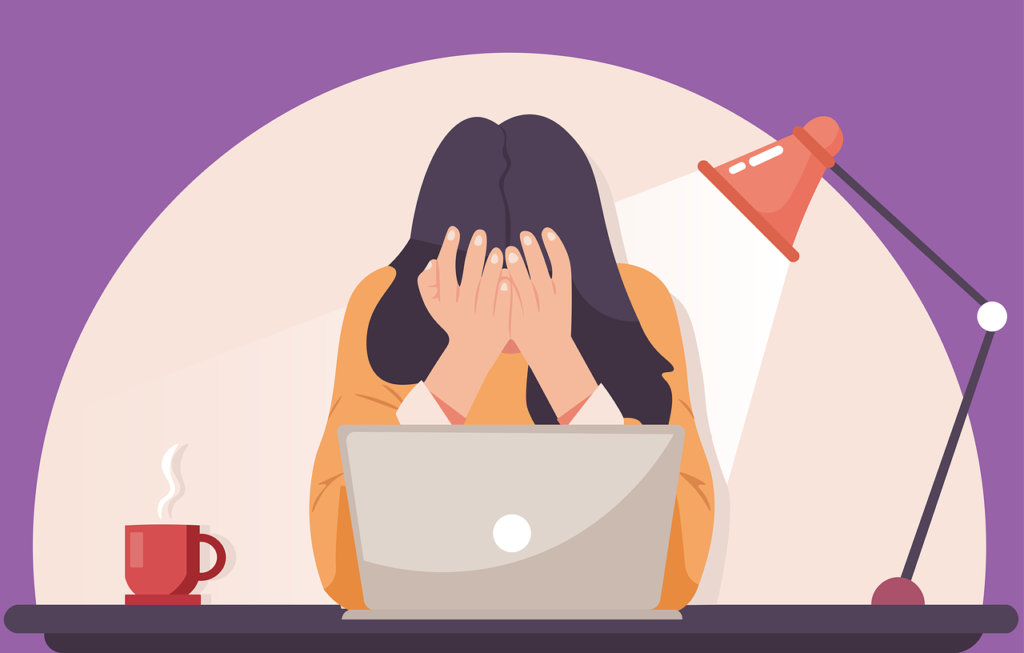The Silent Burden
Low self-esteem often hides in plain sight. It doesn’t always show up as obvious sadness or insecurity. Instead, it weaves itself into daily thoughts and decisions, quietly shaping how people view themselves and the world. The burden is heavy because it impacts so many parts of life—from how we speak up in conversations to the way we pursue opportunities. For some, financial challenges like irregular income can worsen the strain, reinforcing feelings of uncertainty and inadequacy. What may start as self-doubt can grow into a cycle that affects mental health, relationships, and overall life satisfaction.
How Low Self-Esteem Impacts Mental Health
One of the most serious effects of low self-esteem is its toll on mental health. People who constantly question their worth are more vulnerable to anxiety and depression. They may internalize criticism, replay mistakes in their minds, or struggle to accept compliments. This mental loop makes it difficult to break free from negative thinking. Over time, the constant self-criticism can erode resilience, leaving individuals less able to handle everyday stress. The weight is not just emotional but also cognitive, draining energy and focus.
Relationships Under Pressure
Low self-esteem can also disrupt how people connect with others. When someone feels unworthy, they may withdraw socially or avoid forming close bonds out of fear of rejection. On the flip side, they may overcompensate by clinging to unhealthy relationships, believing they don’t deserve better. These patterns can strain friendships, romantic partnerships, and family ties. A lack of confidence also makes it harder to set boundaries, leading to resentment and exhaustion. In this way, low self-esteem doesn’t just affect the individual—it ripples through their social circle.
The Impact on Daily Functioning
Beyond mental health and relationships, low self-esteem touches practical aspects of life. At school or work, it can hold people back from speaking up, sharing ideas, or aiming higher. Fear of failure becomes a barrier to growth. Even basic self-care can suffer, as individuals may not feel they are worth the effort. Over time, this can reduce productivity, limit career development, and reinforce financial or personal instability. The weight of low self-esteem makes everyday functioning harder than it needs to be.
The Cycle of Self-Doubt and Missed Opportunities
A damaging feature of low self-esteem is the cycle it creates. Doubting yourself leads to hesitation, hesitation leads to missed opportunities, and missed opportunities reinforce feelings of inadequacy. Each step in this cycle makes the weight heavier, convincing people that their negative beliefs about themselves are true. Breaking this cycle requires intentional effort, often with the support of others, but many remain stuck because the cycle feels so convincing and inescapable.
Physical Consequences of Emotional Weight
The burden of low self-esteem doesn’t stop with the mind. It often translates into physical health problems. Stress from constant self-criticism can cause headaches, digestive issues, and sleep problems. Some people may turn to unhealthy coping strategies like overeating, substance use, or neglecting exercise. Over time, the physical toll reinforces the emotional one, creating another feedback loop that is difficult to escape. Addressing low self-esteem, then, isn’t just about improving mood—it’s about protecting overall health.
Breaking Free From the Burden
While the weight of low self-esteem is heavy, it is not unmovable. Small but consistent steps can make a difference. Practicing self-compassion helps challenge the harsh inner critic. Setting realistic goals and celebrating small victories builds confidence gradually. Surrounding yourself with supportive people provides encouragement and perspective. Therapy and counseling can also play a crucial role, offering tools to reframe negative thoughts and strengthen resilience. Each step may feel small, but together they lighten the load over time.
Why Self-Esteem Matters for Quality of Life
At its core, self-esteem shapes how people experience life. With healthy self-esteem, challenges feel manageable, relationships become more fulfilling, and opportunities feel within reach. Without it, even small tasks feel overwhelming, and joy feels out of grasp. Recognizing the true weight of low self-esteem is the first step in addressing it. When individuals begin to see their worth, the burden eases, opening the door to growth, connection, and well-being.
Conclusion: Reclaiming Worth
Low self-esteem is not just a passing feeling of self-doubt—it is a heavy psychological and emotional burden that affects mental health, relationships, and daily life. Left unchecked, it can reduce quality of life and limit personal growth. But it is possible to break free from the trap by rebuilding self-trust, practicing compassion, and seeking support. The weight may be heavy, but with time and effort, it can be lifted. Reclaiming a sense of worth transforms not just how people see themselves, but how they live their lives.
You May Also Like: Common Pitfalls in Medical Billing Compliance and How to Avoid Them











